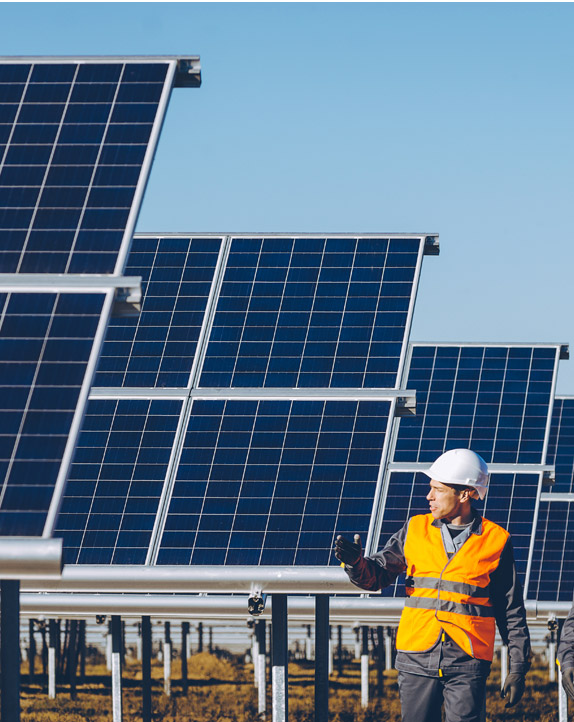Federal Incentives For Solar Power
PowerThere is no denying that solar power offers excellent environmental benefits but it also has the potential to significantly bring down your power bills. Using solar to fully or partially power your property allows you to save money on your power bills but there is a lot more to it.
There are federal solar power incentives and if you qualify for these rebates, it will help you save even more money. The experts at Macedon Ranges Solar Power are here to explain how to take advantage of these federal incentives for solar energy from the government.

Why Choose Macedon Ranges Solar Power?

We are well known for being a market leader in commercial as well as residential solar energy solutions

We have extensive experience in electrical and solar power systems

Our offerings include scalable and flexible solutions

We have an established track record backed by numerous positive testimonials and customer reviews

We offer the latest solar energy solutions

Our solutions will help you save a lot of money

Our prices are affordable and within your reach

Our team consists of experienced and well-trained solar technicians and electricians

Each of the solar power solutions for our customers in Victoria is designed from scratch

We believe in solar power and are passionate about renewable energy

Solar Power Rebates and Federal Incentives
SolarThe government in Australia has established a framework known as the Renewable Energy Target. This framework includes incentives for large-scale and small-scale solar power systems. Under this framework, there are 2 categories of solar power producers:
Small-scale producers
Large-scale producers
Both these categories cater to different scales of solar power production in Australia. The small-scale renewable energy scheme caters to commercial and residential solar energy generation systems with less than 100 kW generation capacity.
Large-scale category targets systems with a capacity of more than 100 kW. In short, this category of solar power producers are large-scale producers that work at a utility scale or are involved in commercial solar power generation. One example would be an operator of a solar farm.
Small-Scale Technology Certificates
These certificates are offered by the federal government to solar power system owners for home or business use. The number of these certificates is calculated on the basis of the electricity generation capacity of your system. This capacity is measured in megawatts per hour.
In order to qualify for the certificates, your system needs to have a capacity of less than 100 kW and should use approved solar panels. It should only be installed by a licensed professional. The owners can then sell these certificates to electricity suppliers and other companies. In short, these certificates help in bringing down the initial cost of a solar power system.
Calculation of STCs
STCs are generated on the basis of average system output. One certificate is equivalent to one megawatt-hour of solar power generation. If you want to know how many STCs you will be awarded, you need to calculate the megawatt-hours of energy production of your system on a monthly or yearly basis.
An important thing you need to understand here is that the solar panel installers may take responsibility and apply these incentives before the installation. You are given these in the form of a discount. In short, solar installers have been allowed under this framework to buy and sell these certificates similar to financial communities such as currencies and stocks.
How Many Certificates Will You Get?
The number of certificates depends on your location, date of installation as well as your system. Each system has the requirement to be able to generate solar electricity worth a minimum quantity within a particular period. This period is known as the deeming period.
The general rule for certificates is that one certificate is awarded for each megawatt-hour of electricity produced during the deeming period. The deeming period for all these certificates will come to a close in 2030.
Calculation Example
SolarCurrently, the typical capacity of an average solar power system for home use is 6.6 kW with a 5 kW inverter.
As discussed earlier, 1 MWh means one certificate. Since this certificate is expected to generate 9 MWh, the owner of this system is likely to get 9 certificates each year until 2030.
If you are based in a sunny location such as Central Victoria, your system is likely to generate more solar electricity which means you will get more certificates and ultimately, higher savings.

Currently, you can get around $35 for one small-scale technology certificate. You may use this price to figure out the amount of money you can save with the help of your solar power system.
In addition to these incentives at the federal level, there are many other rebates and incentives on offer at the level of states and territories. You need to qualify for these rebates and incentives in order to save huge amounts of money on your power consumption.
Give us a call at Macedon Ranges Solar Power today to learn more about saving money with solar energy.

